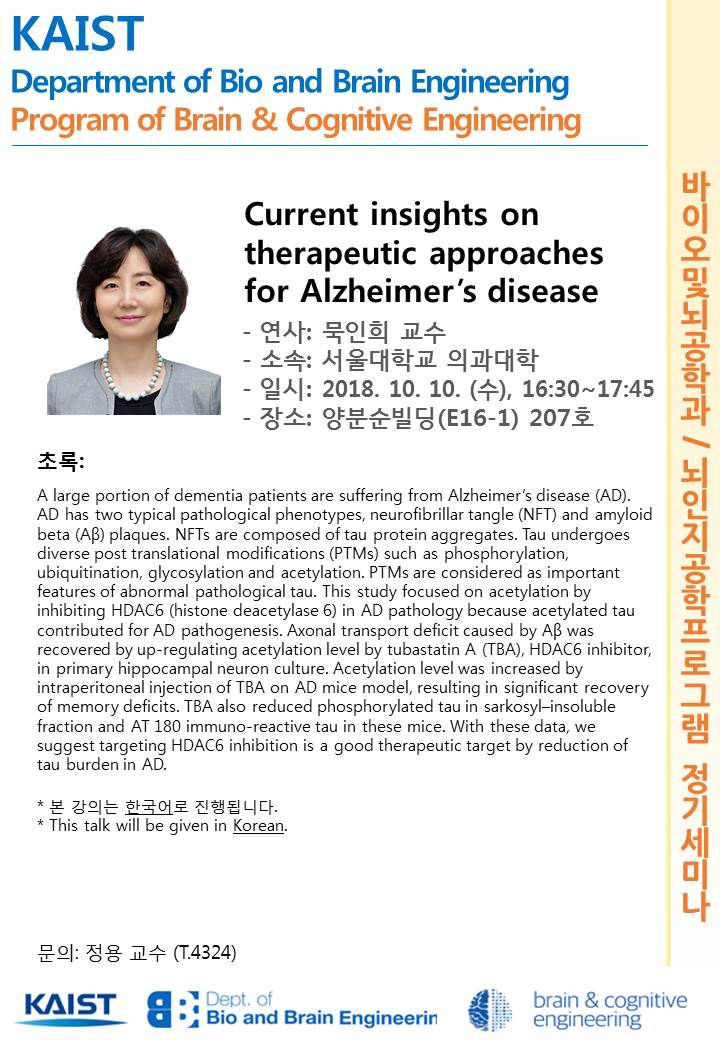| 연사 | 묵인희교수 |
|---|---|
| 소속 | 서울대학교 의과대학 |
| 일시 | 2018. 10. 10 (수), 16:30~ 17:45 |
| 장소 | 양분순빌딩(E16-1)207호 |

1. Title : Current insights on therapeutic approaches for Alzheimer’s disease
2. Speaker : Prof. Inhee Mook (Department of Biochemistry & Molecular Biology College of Medicine Seoul National University)
3. Date & Time : 16:30~17:45, October 10th(Wed.)
4. Venue : Rm#207, YBS Bldg(E16-1)___a.k.a Auditorium
5. Abstract: A large portion of dementia patients are suffering from Alzheimer’s disease (AD). AD has two typical pathological phenotypes, neurofibrillar tangle (NFT) and amyloid beta (Aβ) plaques. NFTs are composed of tau protein aggregates. Tau undergoes diverse post translational modifications (PTMs) such as phosphorylation, ubiquitination, glycosylation and acetylation. PTMs are considered as important features of abnormal pathological tau. This study focused on acetylation by inhibiting HDAC6 (histone deacetylase 6) in AD pathology because acetylated tau contributed for AD pathogenesis. Axonal transport deficit caused by Aβ was recovered by up-regulating acetylation level by tubastatin A (TBA), HDAC6 inhibitor, in primary hippocampal neuron culture. Acetylation level was increased by intraperitoneal injection of TBA on AD mice model, resulting in significant recovery of memory deficits. TBA also reduced phosphorylated tau in sarkosyl–insoluble fraction and AT 180 immuno-reactive tau in these mice. With these data, we suggest targeting HDAC6 inhibition is a good therapeutic target by reduction of tau burden in AD.






